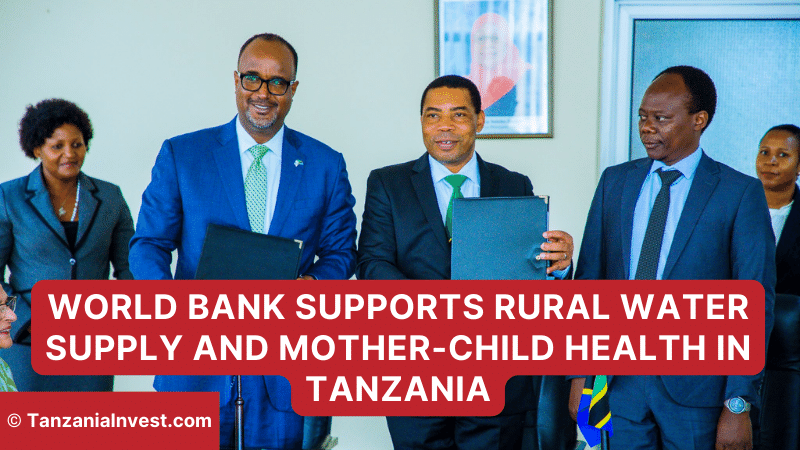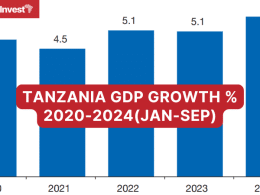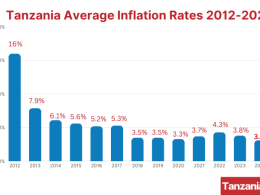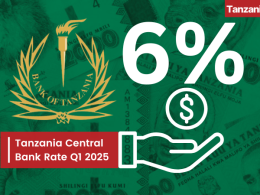On the 28th of February 2023, Tanzania and the World Bank signed two agreements for concessional loans and grants worth USD 579.93 (TZS 1.332.8 trillion) for the implementation of two projects in the country.
One project is for clean water and environmental sanitation under the Tanzania Sustainable Rural Water Supply and Sanitation Programme and the other is for improving the health of mother and child under the Tanzania Maternal and Child Health Investment Programme.
The agreements were signed in Dar es Salaam by Tanzania’s Minister of Finance and Planning, Dr Mwigulu Lameck Nchemba and the Resident Director of the World Bank in Tanzania, Mr Nathan Belete.
Speaking at the signing ceremony, Dr Nchemba explained that among these funds, USD 550 million (TZS 1.264 trillion) is a concessional loan and USD 29.93 million (TZS 68.79 billion) is a grant.
Dr Nchemba detailed that the Sustainable Water and Sanitation Program Project has been allocated USD 300 million (TZS 689.51 billion) in concessional loans and USD 4.93 million in grants while the project to improve Mother and Child Health has been given USD 250 million (TZS 574.59 billion) and grants for USD 25 million (TZS 57.46 billion).
“The funded projects are in line with the national goals of improving people’s lives through the Third Five-Year National Development Plan 2021/2022 to 2025/2026, and the Zanzibar Vision 2050, which is the Government’s agenda for the Sixth Phase of increasing the availability of water in rural and urban areas and improving the environment and providing quality and reliable health services for mothers and children, Tanzania Mainland and Zanzibar,” said Dr Nchema.
Dr Nchemba clarified that the loans that are being borrowed by the Government are invested in projects that quickly stimulate the country’s economy and 73% of the loans come from International Financial Institutions including the World Bank whose interest rate is low (less than 1%), and the repayment period begins after a long time.
“The grace period before we start paying is long-between 30 to 40 years-which is different from the terms of commercial loans which are paid within two to 10 years and the interest is high” explained Dr Nchema.
For his part, the Resident Director of the World Bank, Mr Nathan Belete, praised Tanzania for managing its economy well and promised that the Bank will continue to support the country’s efforts by providing funds to implement various strategic projects that will help the country achieve its development goals.










